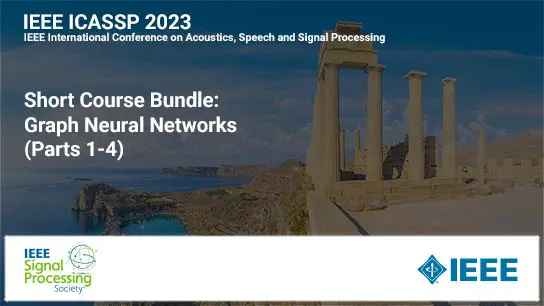DISTRIBUTED LINK SPARSIFICATION FOR SCALABLE SCHEDULING USING GRAPH NEURAL NETWORKS
Zhongyuan Zhao, Santiago Segarra, Ananthram Swami
-
Members: FreeSPS
IEEE Members: $11.00
Non-members: $15.00Length: 00:14:39
10 May 2022
Distributed scheduling algorithms for throughput or utility maximization in dense wireless multi-hop networks can have overwhelmingly high overhead, causing increased congestion, energy consumption, radio footprint, and security vulnerability. For wireless networks with dense connectivity, we propose a distributed scheme for link sparsification with graph convolutional networks (GCNs), which can reduce the scheduling overhead while keeping most of the network capacity. In a nutshell, a trainable GCN module generates node embeddings as topology-aware and reusable parameters for a local decision mechanism, based on which a link can withdraw itself from the scheduling contention if it is not likely to win. In medium-sized wireless networks, our proposed sparse scheduler beats classical threshold-based sparsification policies by retaining almost $70%$ of the total capacity achieved by a distributed greedy max-weight scheduler with $0.4%$ of the point-to-point message complexity and $2.6%$ of the average number of interfering neighbors per link.



